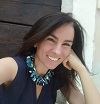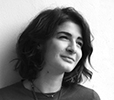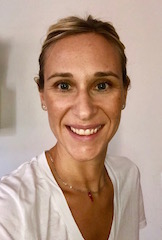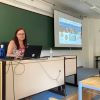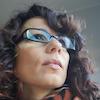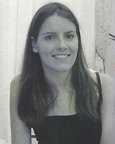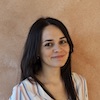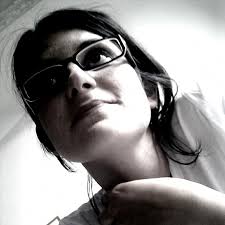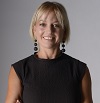Studying at the University of Verona
Here you can find information on the organisational aspects of the Programme, lecture timetables, learning activities and useful contact details for your time at the University, from enrolment to graduation.
Academic calendar
The academic calendar shows the deadlines and scheduled events that are relevant to students, teaching and technical-administrative staff of the University. Public holidays and University closures are also indicated. The academic year normally begins on 1 October each year and ends on 30 September of the following year.
Course calendar
The Academic Calendar sets out the degree programme lecture and exam timetables, as well as the relevant university closure dates..
| Period | From | To |
|---|---|---|
| Sem. 1A | Sep 21, 2020 | Oct 31, 2020 |
| Sem. 1B | Nov 9, 2020 | Jan 9, 2021 |
| Sem. 2A | Feb 15, 2021 | Apr 1, 2021 |
| Sem. 2B | Apr 14, 2021 | May 29, 2021 |
| Session | From | To |
|---|---|---|
| Sessione d'esame invernale | Jan 14, 2021 | Feb 13, 2021 |
| Sessione d'esame estiva | Jun 7, 2021 | Jul 24, 2021 |
| Sessione d'esame autunnale | Aug 23, 2021 | Sep 18, 2021 |
| Session | From | To |
|---|---|---|
| Sessione di laurea estiva | Jul 5, 2021 | Jul 10, 2021 |
| Sessione di laurea autunnale | Nov 8, 2021 | Nov 13, 2021 |
| Sessione di laurea invernale | Mar 28, 2022 | Apr 1, 2022 |
| Period | From | To |
|---|---|---|
| Festa di Ognissanti | Nov 1, 2020 | Nov 1, 2020 |
| Festa dell'Immacolata | Dec 8, 2020 | Dec 8, 2020 |
| Vacanze di Natale | Dec 24, 2020 | Jan 6, 2021 |
| Vacanze di Pasqua | Apr 2, 2021 | Apr 6, 2021 |
| Festa della liberazione | Apr 25, 2021 | Apr 25, 2021 |
| Festa del lavoro | May 1, 2021 | May 1, 2021 |
| Festa del Santo Patrono | May 21, 2021 | May 21, 2021 |
| Festa della Repubblica | Jun 2, 2021 | Jun 2, 2021 |
| Vacanze estive | Aug 9, 2021 | Aug 15, 2021 |
Exam calendar
Exam dates and rounds are managed by the relevant Humanistic Studies Teaching and Student Services Unit.
To view all the exam sessions available, please use the Exam dashboard on ESSE3.
If you forgot your login details or have problems logging in, please contact the relevant IT HelpDesk, or check the login details recovery web page.
Should you have any doubts or questions, please check the Enrollment FAQs
Academic staff
 marialivia.alga@univr.it
marialivia.alga@univr.it
 tamara.bastianello@univr.it
tamara.bastianello@univr.it
 simona.carta@univr.it
simona.carta@univr.it
 marialuisa.costantino@univr.it
marialuisa.costantino@univr.it
 donato.desilvestri@univr.it
donato.desilvestri@univr.it
 elena.desilvestri@univr.it
elena.desilvestri@univr.it
Ganzerla Luca Giovanni Michelangelo
 lucagiovanni.ganzerla@univr.it
lucagiovanni.ganzerla@univr.it
 licia.landi@univr.it
licia.landi@univr.it
 maria.mori@univr.it
maria.mori@univr.it
 ilaria.mussini@univr.it
ilaria.mussini@univr.it
 alessandro.ongaro@univr.it
alessandro.ongaro@univr.it
 valentina.persici@univr.it
valentina.persici@univr.it
 stefania.pontrandolfo@univr.it
stefania.pontrandolfo@univr.it
 rosanna.vit@univr.it
rosanna.vit@univr.it
 barbara.zoccatelli@unitn.it
barbara.zoccatelli@unitn.it
Study Plan
The Study Plan includes all modules, teaching and learning activities that each student will need to undertake during their time at the University.
Please select your Study Plan based on your enrollment year.
1° Year
| Modules | Credits | TAF | SSD |
|---|
2° Year activated in the A.Y. 2021/2022
| Modules | Credits | TAF | SSD |
|---|
3° Year activated in the A.Y. 2022/2023
| Modules | Credits | TAF | SSD |
|---|
| Modules | Credits | TAF | SSD |
|---|
| Modules | Credits | TAF | SSD |
|---|
| Modules | Credits | TAF | SSD |
|---|
| Modules | Credits | TAF | SSD |
|---|
Legend | Type of training activity (TTA)
TAF (Type of Educational Activity) All courses and activities are classified into different types of educational activities, indicated by a letter.
Philosophy of Education (2022/2023)
Teaching code
4S00785
Teacher
Coordinator
Credits
6
Language
Italian
Scientific Disciplinary Sector (SSD)
M-PED/01 - PEDAGOGY, THEORIES OF EDUCATION AND SOCIAL EDUCATION
Period
Sem. 1B dal Nov 14, 2022 al Dec 23, 2022.
Learning objectives
Knowledge and understanding 1. Know the main educational problems and understand more deeply their pedagogical and existential meaning through a linguistic, methodological and reflective philosophical approach. 2. Understand that educational action, like any other professional activity, has in itself an ethical, aesthetic and theoretical dimension, for whose full understanding philosophical reflection is necessary. 3. Know and understand that the philosophical contribution to educational practice and pedagogical reflection ultimately concerns the meaning of educational action. Applying knowledge and understanding 1. Use a cognitive methodology that starts from the educational experience, reads its meaning in philosophical terms and then returns to educational practice. 2. To know how to justify the relationship between educational experience, pedagogical reflection and philosophical theorizing, and to understand the cultural and professional value of this relationship in educational work. 3. To learn directly from philosophical thought further existential, cultural and professional motivations that can strengthen the ability to operate in a competent and responsible way in different educational contexts.
Prerequisites and basic notions
Students are invited to remember, of their study path:
─ the constitutive aspects that characterize each educational activity (relational, communicative, finalistic, methodological, contextual, existential aspects), and the specific contents that are specific to each of the multiple educational situations, to which the respective pedagogical disciplines are connected; ─ the philosophical contents that have been the object of study and learning in the first two years of the degree course in Educational Sciences.
Program
The teaching program is divided into the following topics. Epistemological part 1. Why the presence of philosophy in education and pedagogy. 2. General characteristics of philosophy; definition, contents, methods and purposes of philosophical knowledge 3. The cognitive and interdisciplinary structure of the philosophy of education and its purpose. Content part 4. Education as an existential experience and as a methodological synthesis between theory and practice. 5. At the center of the educational experience: the human being as a person and his recognition. 6. At the bottom of cognitive activity: the search for truth and the role of error. 7. At the bottom of the perceptive and emotional activity: the desire for beauty and its search. 8. At the bottom of human action: the awareness of good and the experience of evil. 9. Living in time and space: the experience of human limits and finiteness. 10. Educational work, professional life and code of ethics for educators.
Bibliography
Didactic methods
Lessons will be held keeping in mind some teaching methods that will alternate according to the needs connected to the development of the program: - frontal teaching, as the main teaching method, necessary to allow an orderly, reasoned and essential learning; - participatory and dialoguing teaching, useful for encouraging interventions, reflections and questions by students, questions, on the topics addressed, in the classroom and on the Moodle platform connected to teaching. - reflective teaching: students will be invited to rethink their educational experience and their pedagogical knowledge, in the light of the disciplinary contents being taught, or of the further readings, recommended during the lessons. Attendance in the classroom is not compulsory, but it is equally and strongly recommended. - With regard to students who find themselves in situations of particular difficulty that prevents them from being present in the classroom, with particular regard to those who find themselves in situations of cognitive fragility, the teacher - within the limits of their possibilities - confirms their willingness to identify and implement specific moments and methods of didactic support.
Learning assessment procedures
The verification of learning will take place in the form of the compulsory written test for everyone, without distinction between attending and non-attending students, Italian students and Erasmus students. The written test will consist of 5 open questions and the maximum duration of the exam will be 3 hours. There are 6 exam sessions, two for each exam session. For those who are particularly interested in the contents of this course, it is possible to integrate the exam in two ways:
- writing a written report, to be delivered to the teacher on the day of the exam, on a topic related to 'teaching and agreed in advance with the teacher;
- the request for an oral interview which can be aimed at further deepening the content studied, or at the presentation of a new topic, object of personal study. The request for the oral interview must be agreed in advance with the teacher, both in terms of content and in terms of implementation. The two possibilities are optional, therefore freely chosen, and their purpose is to allow interested students to further enrich their knowledge. The two possibilities are not intended for any reason as a way of verifying one's learning that can replace the written exam. The two modalities can be agreed in time, but can only be done after having completed and passed the written test.
Evaluation criteria
A) The evaluation of the exam will take place through the verification of the presence of the following learning skills:
1. knowing how to present the main contents of a given topic in a linguistically correct and discursively coherent summary; 2. knowing how to correctly identify and define the concepts that represent the cognitive pillars of a given theoretical argument;
3. knowing how to analyze and reconstruct the main arguments that support the reasoning or reflections that are the basis of the thought of a particular author;
4. knowing how to compare and evaluate different cognitive elements (words, concepts, theories, arguments and historical-cultural contexts), understanding their affinities and differences;
5. knowing how to understand and translate a given theoretical content into the forms of a possible practical action and vice versa: knowing how to recognize the presence of a specific theoretical content in a practical experience.
B) The measurement of learning ability, applied to the written test, will take place as follows:
- a score, expressed out of thirty, will be attributed to each answer;
- the final mark of the written test, also expressed out of thirty, will come from the average of the marks of the individual answers, which will be accompanied by a qualitative evaluation (see point c);
- the presentation of a written report and the request for an in-depth interview will be evaluated with a score ranging from 1 to 3 points, which will be added to the final grade.
A further element that students are asked to consider with attention and care concerns the degree of graphic, grammatical and syntactic correctness of their own way of writing. If a certain way of writing makes it particularly difficult to understand the text, this difficulty will be considered as an obstacle to understanding the text and its correct evaluation.
C) Breakdown of the score out of thirty with an attached qualitative evaluation.
30 cum laude (Excellent)
30 - 28 (Distinguished)
27 - 25 (Good)
24 - 22 (Fair)
21 - 19 (Sufficient)
18 (Minimum sufficient)
17 - 15 (Insufficient)
14 - 12 (Very insufficient)
Criteria for the composition of the final grade
The composition of the final grade comes from the average of the marks of the individual answers given to the questions of the task.
In the event that a student presents a written report or asks to carry out an oral examination, between 1 and 3 points can be added to the mark of the written assignment.
Exam language
Italiano
Type D and Type F activities
Modules not yet included
Career prospects
Module/Programme news
News for students
There you will find information, resources and services useful during your time at the University (Student’s exam record, your study plan on ESSE3, Distance Learning courses, university email account, office forms, administrative procedures, etc.). You can log into MyUnivr with your GIA login details: only in this way will you be able to receive notification of all the notices from your teachers and your secretariat via email and soon also via the Univr app.
Graduation
Documents
| Title | Info File |
|---|---|
|
|
pdf, it, 99 KB, 13/10/23 |
|
|
pdf, it, 101 KB, 10/04/24 |
List of theses and work experience proposals
| theses proposals | Research area |
|---|---|
| Ambienti e contesti di lavoro con minori | Various topics |
| Analisi dei personal network di sostegno | Various topics |
| comunicazioni relative alla tesi | Various topics |
| Il teatro come contesto educativo | Various topics |
| I processi di globalizzazione culturale nella società contemporanea | Various topics |
| La social network analysis applicata allo studio dei contesti educativi | Various topics |
| L'educatore ed i progetti europei | Various topics |
| L'impegno associativo in ambito educativo | Various topics |
| Politiche sociali e contesti educativi | Various topics |
| Progetti di collaborazione con le istituzioni scolastiche | Various topics |
| PROPOSTE TESI AMBITO GEOGRAFICO | Various topics |
| Scuola e capitale sociale | Various topics |
Linguistic training CLA
Gestione carriere
Student mentoring
Practical information for students
Documents
| Title | Info File |
|---|---|
|
|
pdf, it, 325 KB, 02/05/23 |
|
|
pdf, it, 212 KB, 02/05/23 |
|
|
pdf, it, 131 KB, 02/05/23 |
Stage e Tirocini
Le ulteriori attività formative (crediti F) sono interamente coperte dall’attività di tirocinio “indiretto” (1 cfu) da svolgersi nel secondo anno e di tirocinio “diretto” (14 cfu) da svolgersi presso enti convenzionati per un numero complessivo di 15 cfu (375 ore). Chi è iscritta/o al curriculum servizi per l’infanzia è tenuta/o a svolgere il tirocinio presso nidi e servizi per la prima infanzia per almeno il 50% delle ore.
Il tirocinio professionalizzante (375 ore, pari a 15 cfu), è obbligatorio sia nella sua forma diretta che indiretta.
Il tirocinio indiretto, della durata di 25 ore a frequenza obbligatoria al 75%, si svolge in Università per 20 ore e in forma di lavoro individuale per 5 ore e consiste in un accompagnamento iniziale delle/degli studenti da parte dei tutor attraverso un percorso formativo dotandoli di conoscenze e strumenti adeguati a osservare, comprendere e rielaborare criticamente l’esperienza di tirocinio nei servizi educativi e ad affrontare il tirocinio negli enti con metodo e consapevolezza. Il percorso, da attuare in gruppi da 20-25 persone sotto la supervisione di un tutor, risponde alle esigenze costantemente espresse sia dalle/dagli studenti stessi sia dalle parti sociali che dai referenti degli enti convenzionati.
Il tirocinio diretto si propone di raggiungere i seguenti obiettivi:
- fare esperienza diretta di attività professionali, che richiedono un livello di preparazione al lavoro educativo;
- approfondire in particolare il rapporto tra preparazione teorica, acquisita mediante lo studio, ed esperienza pratica, tra mondo del sapere e della cultura e mondo del lavoro e delle professioni;
Al termine del tirocinio diretto lo studente deve presentare una relazione scritta, nella modalità concordata con il tutor accademico.
Nuove Linee Guida per il tirocinio di Scienze dell'educazione.
- Tutte le informazioni in merito agli stage per futuri studenti sono disponibili alla pagina Stage e tirocini.
- Tutte le informazioni in merito agli stage per studenti iscritti sono pubblicate in MyUnivr - come fare per - stage e tirocini.
- Tutte le informazioni in merito agli stage per le aziende sono disponili alla pagina Stage e tirocini per azienze.
Documents
| Title | Info File |
|---|---|
|
|
pdf, it, 302 KB, 16/07/21 |
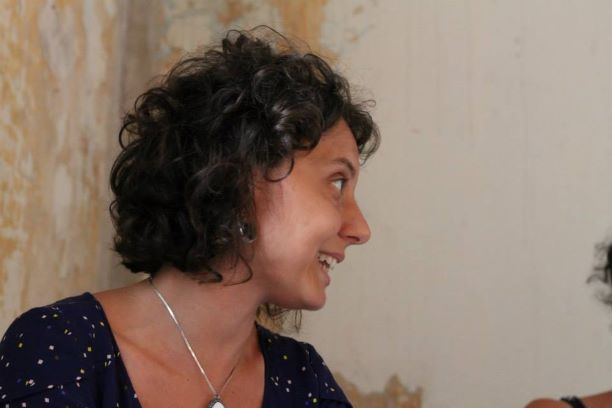
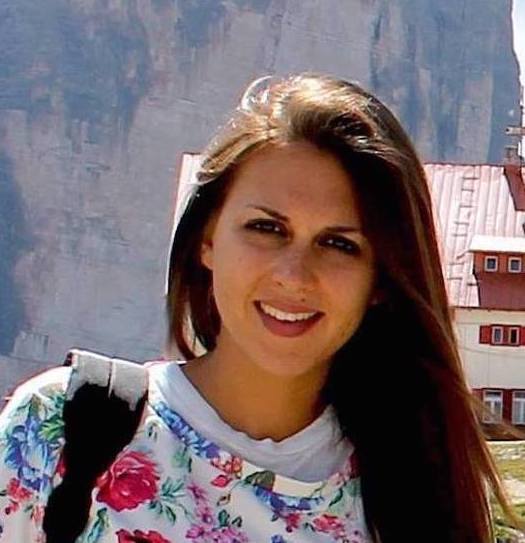
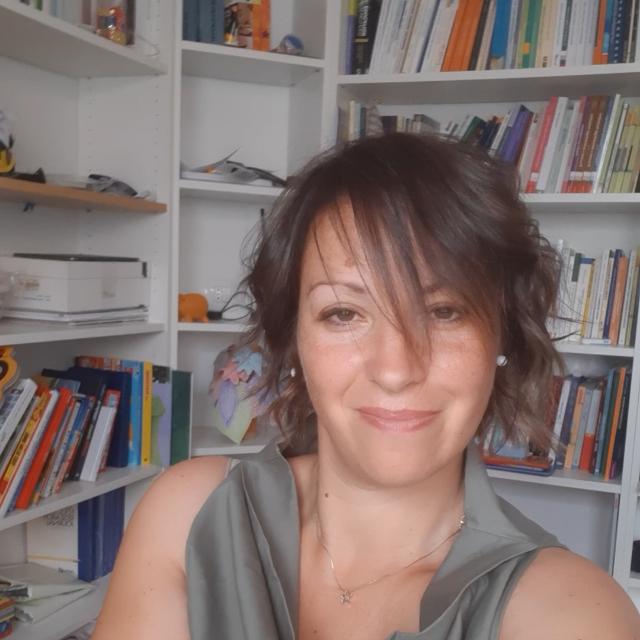
 045 8028383
045 8028383


